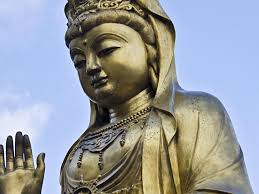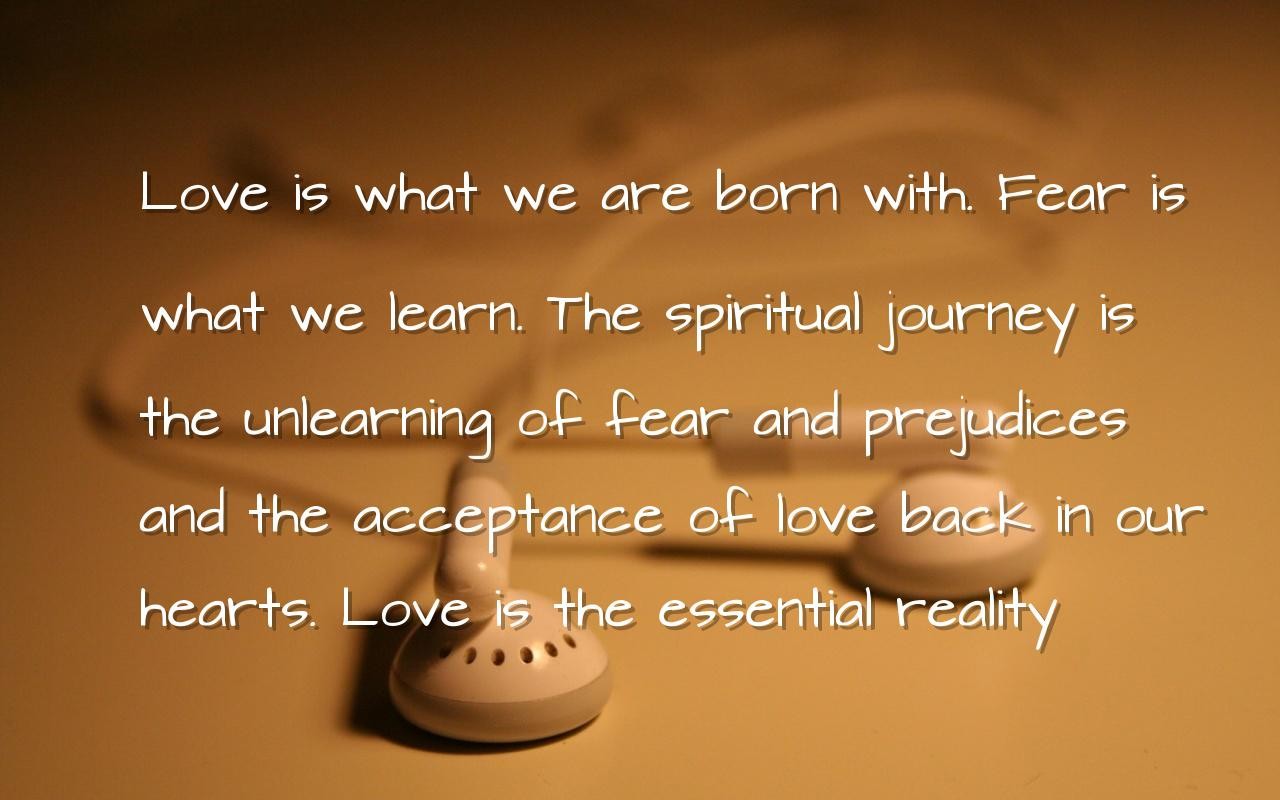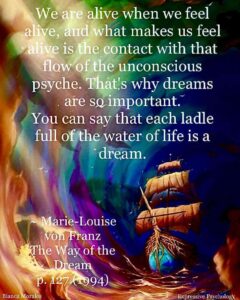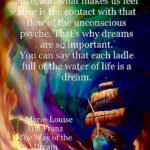Love “bears all things” and “endures all things’* (1 Cor. 13:7). These words say all there is to be said; nothing can be added to them. For we are in the deepest sense the victims and the instruments of cosmogonic “love.” ~Carl Jung; Memories Dreams and Reflections; Page 354ç
At the center of non-violence stands the principle of love. ~Martin Luther King, Jr.
Love . . . is of fundamental importance in human life and . . . of far greater significance than the individual suspects. ~Carl Jung, CW 7, Page 218.
Where there is love, there is life. ~Mahatma Gandhi
AGAPE
Love of the soul. Charity. The love of human for human, God for humans, and humans for God. The highest form of love, the supreme value that sums up and encompasses all the others.

Emotion is one aspect of agape.The Greeks thought of it as empathy and feelings of lovingkindness for others, like sympathy, familiarity, affection, sentiment, and attraction. But agape is also a choice. We can choose to strive for the highest good of others as well as ourselves, even in the face of extreme adversity.
Yet agape is even more than this, and here we enter the realm of mysticism. For spirit persons throughout the world, agape also comes from outside the human body and ego. It is an intangible living thing that we are all born with and immersed in together.
Like the Self, the psyche’s core and circumference, the supreme form of love is a spiritual life force that we cannot escape. Whatever we want to call it, we’re in agape, agape is in us, and every form of love comes from it. Agape is something we are: the Self within us and the miracle of our life. God, Spirit, Life, Love, and the Self are all the same thing.
This means you are sacred, I am sacred, all life is sacred. Why don’t we know it? Why is there so much suffering in this world? Because we have not yet learned the final kind of love I will discuss in this series.
“No one is born hating another person because of the color of his skin, or his background, or his religion. People must learn to hate, and if they can learn to hate, they can be taught to love, for love comes more naturally to the human heart than its opposite.” ~Nelson Mandela
PHILAUTIA
Love of the self. To have regard for your own happiness or advantage. While this is a basic human necessity, many see it as a moral flaw akin to vanity, selfishness, and egotism.
There are two sides to every quality — love and hate, good and evil, pro-social and antisocial — and we still don’t understand that we contain both. We haven’t learned philautia because we are unaware of our core of love and its shadow, hatred. Every human being yearns for love. But like all life, we are still evolving, and most of us haven’t acquired enough self-awareness to achieve it.
When we feel an impulse we think is evil, in our fear and ignorance we project it onto others and turn them into our scapegoats, then secretly hate ourselves for it. The more we do this, the more self-hate wins. Believing we are unworthy, we turn our most valuable commodity, our ability to love, into a sin. And in our self-hatred, we destroy ourselves and the capacity for love in those around us.
I cannot love anyone if I hate myself. ~Carl Jung, Psychological Reflections, Page 221.
To love someone else is easy, but to love what you are, the thing that is yourself, is just as if you were embracing a glowing red-hot iron: it burns into you and that is very painful. ~Carl Jung, Zarathustra Seminar, Page 1473.
Throughout history we’ve been furnished with many models of agape: Lao Tsu, Buddha, Quan Yin, Abraham, Leah, Jesus, Mary the Mother of God, Muhammad, Fatimah, Hildegard of Bingen, Oshun, Gandhi, Martin Luther King, Jr. are among these spiritual warriors. We have yet to fully understand their messages.
Who are your models of agape? What have you learned from them?
Image Credits: Google Images: thespruce.com, she knows, quotes.com. Pinterest: What an idyllic world. Edmond Simpson.
Jean Raffa’s The Bridge to Wholeness and Dream Theatres of the Soul are at Amazon. E-book versions are also at Kobo, Barnes And Noble and Smashwords. Healing the Sacred Divide can be found at Amazon and Larson Publications, Inc. Jean’s new Nautilus Award-winning The Soul’s Twins, is at Amazon and Schiffer’s Red Feather Mind, Body, Spirit. Subscribe to her newsletter at www.jeanbenedictraffa.com.







15 Responses
Thank you so much Jeanie for sharing your wonderful post and second part of love, which in itself sounds right. For how can love be written about in only one part … surely there are many acts to love. I so much enjoy your writing and echo the sentiment that we can only love another to the extent in which we can love ourselves and the importance, nay necessity, that self-love brings. The beauty and wisdom of Nelson Mandela’s words pierces this poet’s heart with joy, insight and Truth!
I love your last question! To cut a long story short, the poets throughout the ages have taught me more about “love” than any other! There are too many bards to list however Shakespeare, through his wicked comedies, love sonnets and unforgettable tragedies, I learnt so much about human relationships whether I was delving into love, madness, jealousy, revenge, magic or all of these mystical transformations at once … it’s all there in his life’s work, a divine tapestry of poetry and plays.
And yet centuries before him came the Greek myths and still those stories impact on me and resonate deeply, often daily. I apologise for going off on a tangent with love but I guess the poets have been whispering in my ear since my early days of learning how to read. First they came in the shape of fairy tales and then adventure stories until I picked up poetry’s pen and started writing down words myself. This has been such a joy to read! Love, light and much laughter always, Deborah.
“Surely there are many acts to love.” 🙂 And I believe that Mandela’s remark that “…love comes more naturally to the human heart than its opposite” is also true. It’s just that we silly creatures have such high ideals and are so painfully aware of how far we fall short of them that we can hardly bear ourselves. Yet, don’t we do our best to give our forgiveness and mercy to others? Why not then give that same gift to ourselves?
I love your poet and mythic mentors. I share some of them with you. In high school I loved Wordsworth and wrote a a poem of my own along the “lines” of “Tintern Abbey.” I just looked it up again and found this summary which totally reminds me of you:
“…his principle (great) theme: that the memory of pure communion with nature in childhood works upon the mind even in adulthood, when access to that pure communion has been lost, and that the maturity of mind present in adulthood offers compensation for the loss of that communion—specifically, the ability to “look on nature” and hear “human music”; that is, to see nature with an eye toward its relationship to human life.”
That’s EXACTLY what you do with your poetry. Surely he was one of your mentors too?
And please don’t apologize for going off on a tangent with love!! 🙂 We need a lot more of that.
Love, light, and much laughter always to you too. Jeanie
Wow! You’ve gift me the language Jeanie that I’ve been searching for all my life to describe what I’m trying to do with my nature poems. Such high praise, thank you!
Re Wordsworth, I feel like I haven’t read anywhere near enough of his wonderful verses so thank you for the timely nudge. There’s a favourite poem of his which I absolutely love which I can’t recall the title tonight … hmm, ‘ it’s something like “Ode to Immortality”. Deep poetic swoon and sigh! Guess what I’ll be reading tomorrow.
🙂 Intimations of Immortality! One of my favorites too. In fact, come to think of it, my poem was modeled more on it than on Tintern Abbey. I only remember the first two lines: “Heavenly stars shine down upon this earthly plain/stars that once knew intimately mortal man.”
I was an idealistic 17 year-old girl with my head in the clouds most of the time. And, I, too, swooned over both poems. Enjoy your reunion with Wordsworth.
A wonderful post Jeanie with your quotes. When will we understand their messages? Yet, it remains true, we find the hardest to love is our own selves. Such a barrier to be broken. How can we truly love another when we find it hard to love ourselves. The message of putting others first before ourselves is ingrained to such an extent that too many of us feel that loving ourselves first is selfish yet, if we look at ‘self-ish’ in another way it makes more sense. How can we give to another if our cup is empty?
Martin Luther King: There may come a time when it will be possible for you to humiliate your worst enemy or even to defeat him, but in order to love the enemy you must not do it… The Greek language has another word [for love]. It calls it agape. Agape is more than romantic love. Agape is more than friendship. Agape is understanding, redemptive goodwill for all men. Agape is an overflowing love, a spontaneous love, which seeks nothing in return. And theologians would say that it is the love of God operating in the human heart. When you rise to love on this level you love all men, not because you like them, not because their ways appeal to you, not because they are worthful to you, but you love all men because God loves them. And you rise to the noble heights of loving the person who does the evil deed while hating the deed that the person does. And I think this is what Jesus means when he says, “Love your enemies.”
The saying ‘love your neighbour as yourself’ says much. Love yourself, love your neighbour warts and all … there by the Grace of God, go you or I …
“… the love of God operating in the human heart.” Just beautiful!
Thank you for sharing Dr. King’s quote, Susan. I’ve never read it before. I, like Deborah below, love his line about agape being “…the love of God operating in the human heart.” Not only was he an idealist, pacifist, and spiritual visionary, but he had the heart of a poet too, didn’t he?
Our world needs both these types of love desperately. I pray for this kind of healing before we do ourselves in. Much love and thanks, Jeanie.
You inspired me:
am in LOVE
I walk in Love
I talk in Love
I wash dishes in Love
I clean the cat box in Love
I use the toilet in Love
I am not in love with
I am in Love Only
It feels as though I am outstanding in the pasture
alongside my Sparkle Plenty, her great electromagnetic heart
entraining mine – we are embraced, enfolded in natural Love.
I shoulder my Karmic path and know others do the same.
I know they walk in love without realizing their truth.
Today many tremble at the thresh-hold of the voting booth.
The feminine principle in the modern human psyche
is clambering at the door of social justice –
Demanding only that the limited human ego
open to the cosmic Law of Gender
Equality in all Dimensions.
Wow! You’ve just inspired ME! Thank you so much for sharing your absolutely beautiful poem here. It Spark-ed several associations in me.
First, your horse Sparkle Plenty: When I was looking for an image for this post I picked the one at the top because of the beautiful sparkly sky. I associated it with the sparks of love that pervade the universe and dwell in the hearts of those smiling people on the beach.
Second: I think of the goddess Sophia, who brought that spark of light to our hearts.
Third, this synchronicity about your mention of the voting booth and the feminine principle in the modern psyche: I’ve just finished a book by the Jungian analyst Dr. Bud Harris this morning called Reflections from the Chrysalis. Your poem reminded me of a passage I read about the many different factions in our society that “are actually nullifying life while claiming to be promoting our best interests. Fanaticism, self-righteousness, and the anger, fear, and aggressiveness that accompany them are the symptoms of our soul-sickness whether it is on the political right or left, in the center or on the fringes.” p. 181-2.
As Dr. Harris and his wife wrote in their brilliant book, Into the Heart of the Feminine: An Archetypal Journey to Renew Strength, Love, and Creativity, the current plague of disengagement in our society is “a consequence of the wounded and repressed feminine in our lives.” They share a quote by the Jungian analyst Marion Woodman who wrote about the repressed feminine: “. . . the Death Mother wields a cold, fierce, violent, and corrosive power. She is rampant in our society right now.” p. 182
Their solution? On election day and all days, people must look “. . . for ways to become engaged, to open their hearts, and to return the strength, love, and creativity of the feminine to our lives.”
My fourth association? The Dick Tracy comic strip, of course! 🙂
With love and blessings, Jeanie
Thank you!
How true! If we learn hate, we can be taught how to love. The main problem, as you say, is fear.
If we call the “Philautia” self-confidence, maybe it helps not to be misunderstood with selfishness or egoism; just as a thought!
And I will choose all these good people as the model but without religion. 😉😅🙏💖
Yes to your comment about being able to learn how to love. But the divisive forces of hate, revenge and fear are strong and it’s especially difficult to avoid them when one has been raised with criticism, cruelty, and anger. I’ve just read a wonderful book by Matthew Quick titled We Are The Light that illustrates this. At one point a deeply wounded high school boy asks his high school counselor, (who, by the way, has been in Jungian analysis), “Why didn’t our mothers love us?” And the counselor says, “We can’t give what we don’t have.”
Self-love is a very difficult concept for so many of us to understand. I get why you don’t want to bring religion into it. Some sects of Christianity (Calvinism) teach that we are born depraved, despite what Jesus taught: “The kingdom of God (Love) is within us,” and “Love your neighbors as yourself.” But it’s not just Christianity that doesn’t understand that. Every religion has sects that teach hatred, divisiveness, and revenge. And non-religious parents teach the same things. The inability to love oneself starts in the cradle in religious and non-religious homes alike. The common factor is that parents who were not given love cannot give their children love. Sending you love and blessings, my friend. Jeanie
Of course, I know what you mean, dear Jeane. There are many good teachers if some opportunists hadn’t been so greedy about using it for their own purposes. When I was young, Jesus was an idol, or at least a model for me, for finding the power of forgiveness. However, we may have to be more conscious about ourselves and our environment first, to handle it correctly.(?)
Thank you so much, my lovely teacher, for your wise words.🙏💖🤗
( “We can’t give what we don’t have.”) Brilliant! 🥰
“However, we may have to be more conscious about ourselves and our environment first, to handle it correctly.” Absolutely!! We need consciousness, (self-awareness) to learn self-love. And we need self-love to learn to love others! It starts with us!